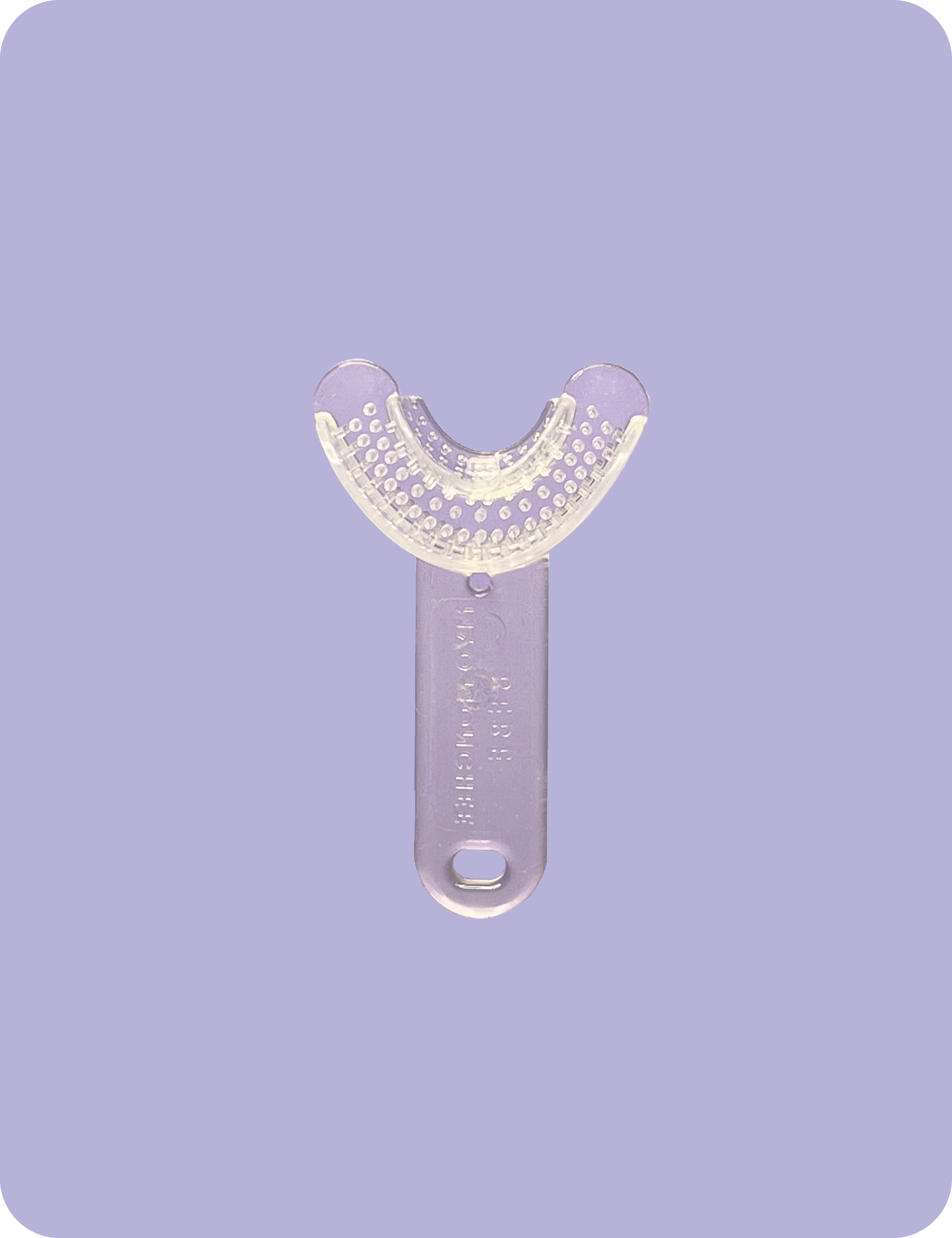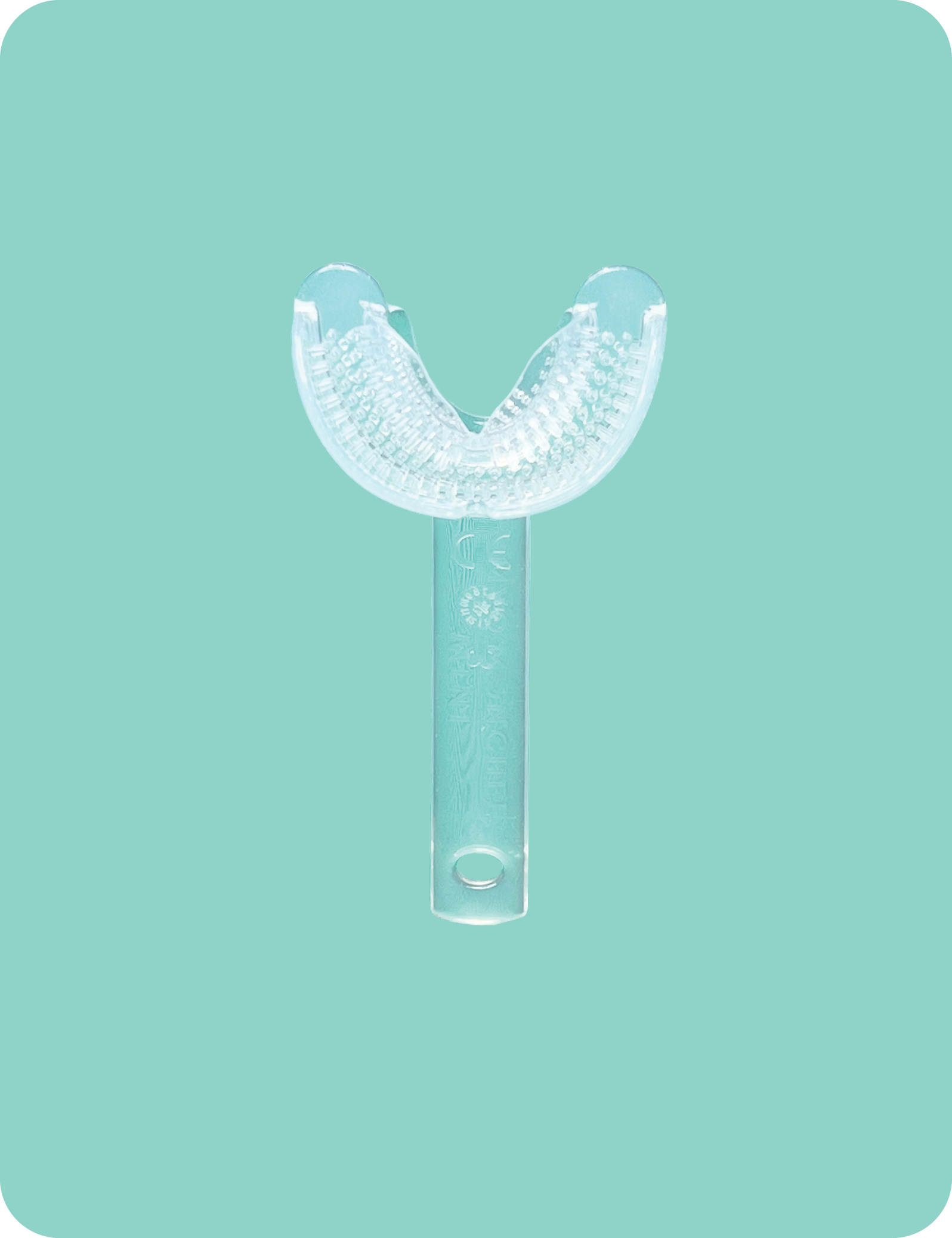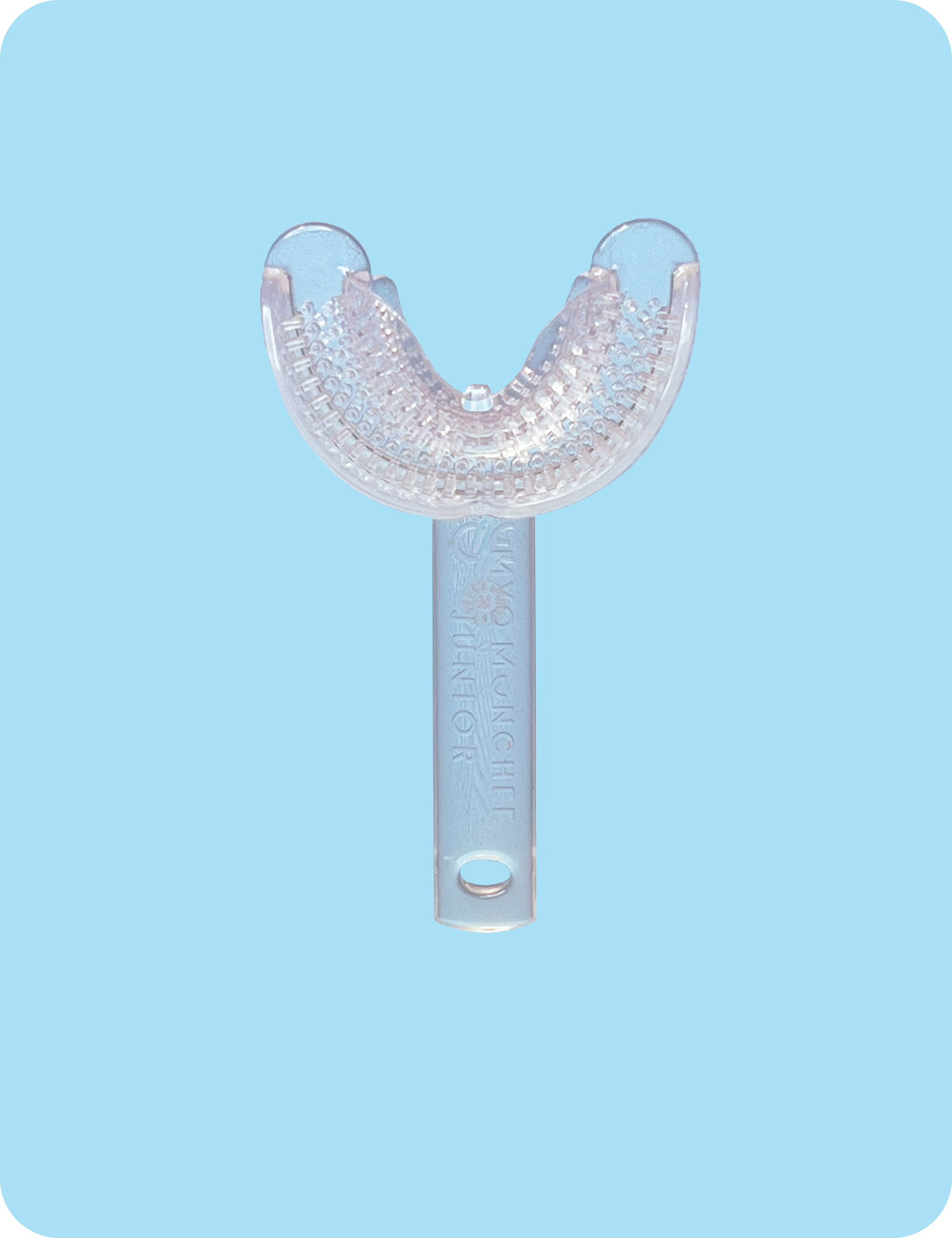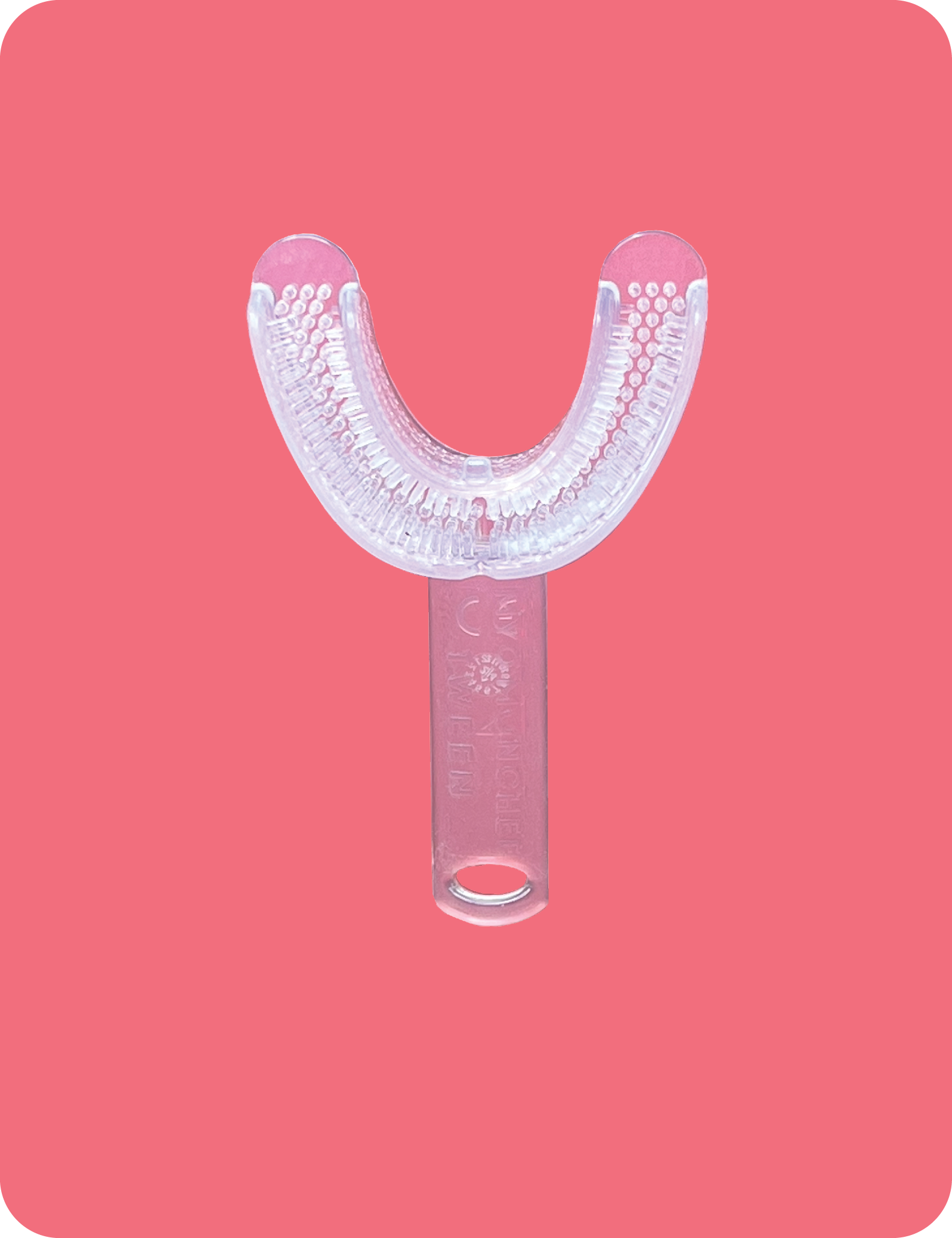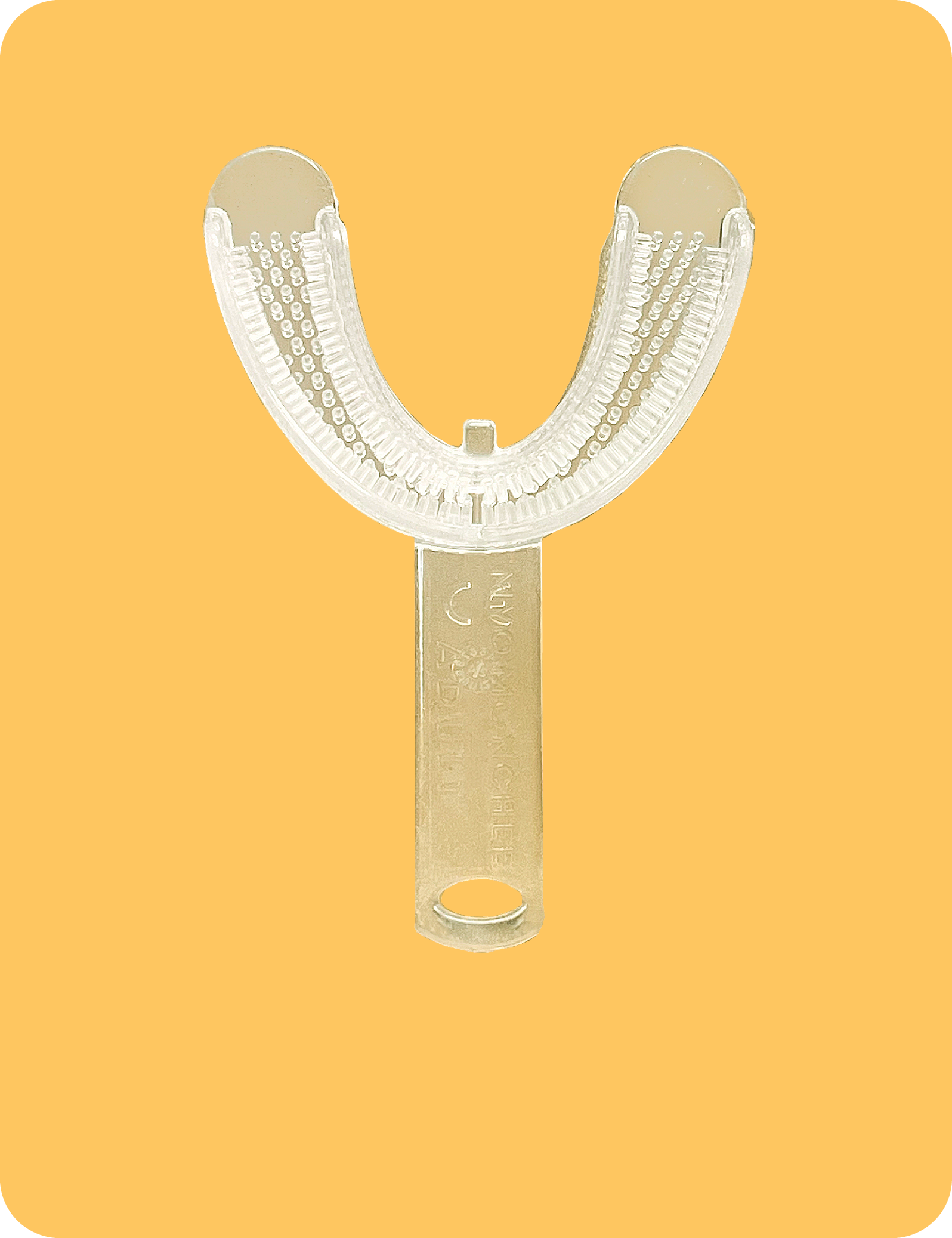Understanding Thumb Sucking: A Gentle Guide for Parents
Thumb sucking is a deeply instinctive behaviour. In fact, many babies begin sucking their thumbs in the womb. For newborns and infants, it's a powerful way to self-soothe, it helps them feel calm, secure, and in control in a brand-new world.
Dr. Staci Whitman, a holistic paediatric dentist, highlights in her discussion that thumb sucking, like pacifier use, can be both helpful and harmful, depending on when and how long it continues. While it's a healthy and normal part of infancy, when the habit stretches into the toddler years and beyond, it can start to impact a child’s oral development, facial growth, and emotional well-being.

Anatomical Impacts of Thumb Sucking
In the early months, thumb sucking doesn't usually cause any structural issues. But if a child continues to suck their thumb after age 1, especially with intensity, it can begin to reshape the mouth and jaw.
According to Dr. Whitman, prolonged sucking creates pressure that alters the way the teeth, tongue, and palate develop. The palate can become narrow and high, and the upper front teeth may begin to protrude. This sets the stage for issues like open bite, overjet, and crossbite, which often require orthodontic correction later.
The tongue is another key player. A child who frequently sucks their thumb may develop a low tongue posture, meaning the tongue rests at the bottom of the mouth rather than the roof. This can disrupt nasal breathing, interfere with proper swallowing, and even impact speech clarity. Over time, these oral patterns may contribute to facial growth that is less than ideal, something Dr. Whitman emphasises when discussing how oral function shapes the structure of the face and airway.
Emotional and Psychosocial Considerations
Thumb sucking serves more than just an oral function; it’s a deep source of emotional comfort. It’s how many children cope with stress, tiredness, overstimulation, or transitions like starting daycare or weaning. In this way, it’s no different than an adult reaching for a cup of tea (coffee for many – just some form of caffeine!) or a child clutching a beloved blanket.
However, Dr. Whitman points out that emotional dependency on thumb sucking can become problematic when it interferes with daily routines, speech, or sleep. Children may become overly reliant on it for regulation, which can delay the development of other self-soothing strategies.
Socially, thumb sucking may begin to impact confidence as a child grows. A preschool or school-aged child may feel embarrassed, particularly if peers notice or comment. And parents, though often well-meaning, may struggle with feelings of guilt, frustration, or judgment, especially when attempts to break the habit don’t work right away…or after months of trying.

Supporting a Gentle Transition Away from Thumb Sucking
Dr. Whitman doesn’t advocate for harsh or shame-based methods to stop thumb sucking. Instead, she promotes a compassionate, developmental approach, emphasising the use of tools like the Myo Munchee to support oral function while replacing the emotional need for sucking.
The Myo Munchee is a small, chewable device made from medical-grade silicone. It’s designed to engage the jaw, lips, and tongue in a positive way, helping to re-engage the muscles that were previously activated by thumb sucking. It’s not just a habit replacement, it’s a developmental chewing tool that encourages healthy facial growth, breathing, and oral posture.
Introducing the Myo Munchee slowly, perhaps during playtime, bathtime or as part of a bedtime routine, can help children shift from passive sucking to active chewing, which stimulates important neurological pathways and supports self-regulation in a new, growth-positive way.
Dr. Whitman suggests that even a few minutes of daily use can make a big difference. And because it's playful, it can feel less like "weaning" and more like a new skill to master—something that’s empowering for young children.

When to Seek Support
Ideally, most children will naturally stop sucking their thumbs between ages 1-2 years. If the habit persists beyond this, or you begin to notice speech delays, dental changes, or signs of mouth breathing, it’s worth consulting with:
- A paediatric dentist
- A speech pathologist
- An orofacial myofunctional therapist
- Or a Myo Munchee Certified practitioner
These professionals can offer personalised strategies to support both the emotional and physical aspects of this transition.
Final Thoughts
Thumb sucking is never a failure on anyone’s part—it’s a natural part of development and often serves an important purpose early in life. The key is to recognise when it begins to interfere with growth and function, and to guide your child gently toward new ways to soothe and comfort themselves.
As Dr. Whitman shares, tools like the Myo Munchee aren't just about stopping thumb sucking—they’re about building healthy habits, nurturing growing bodies, and giving children the tools they need to thrive.

